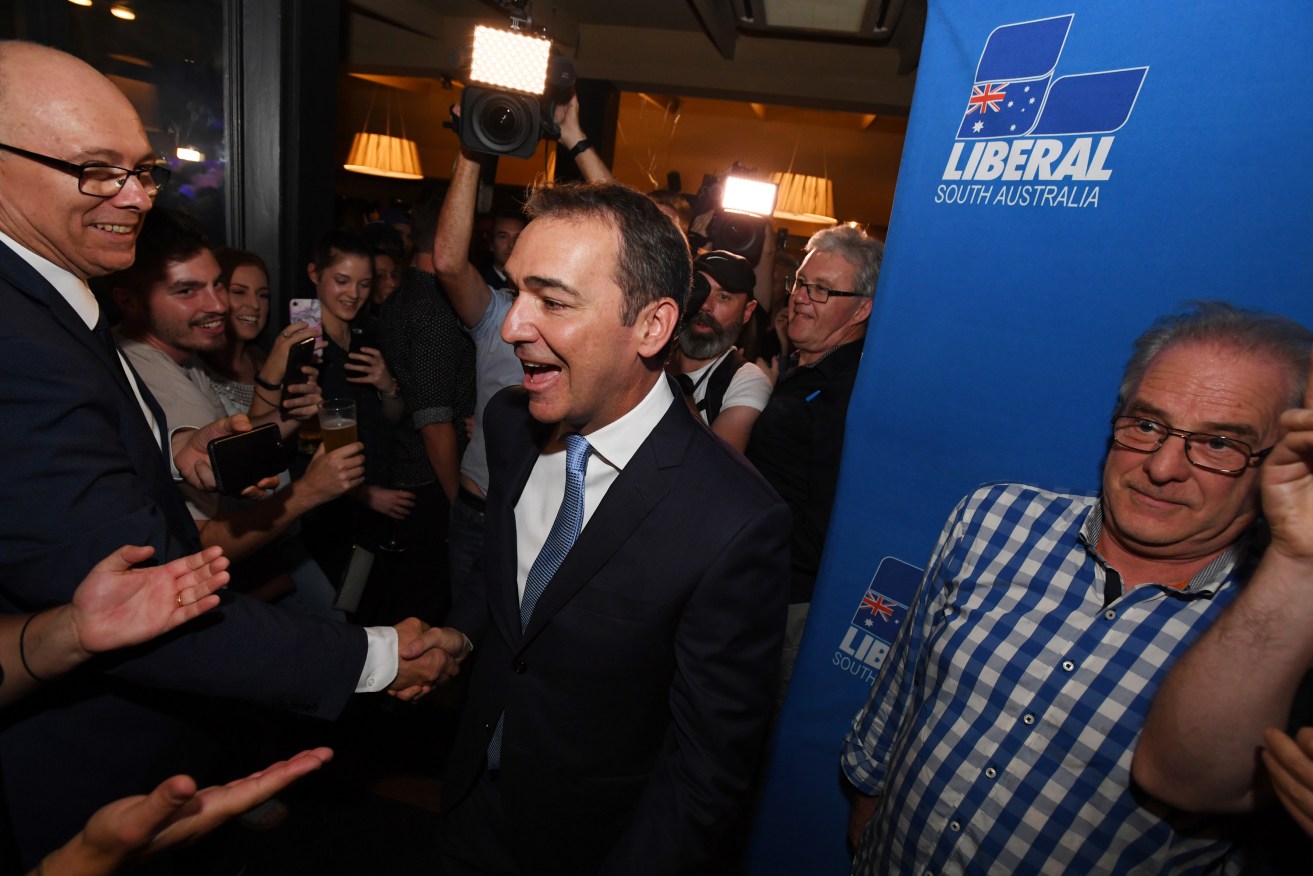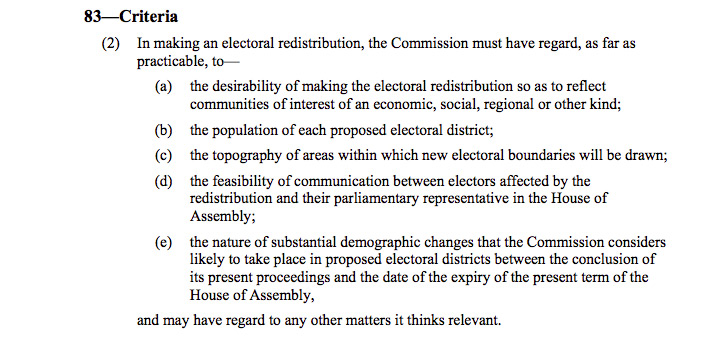“No requirement” to scrap existing electoral boundaries, Commission told
The SA Labor Party has been dealt a potential blow with a courtroom hearing that the electoral boundaries on which the last state election was fought – ending 16 years of ALP rule – should form the “starting point” for the next redistribution, rather than a ‘blank canvas’ approach.

Steven Marshall celebrates on election night. Photo: Tracey Nearmy / AAP
The Electoral Districts Boundaries Commission met for the first time since the 2018 election this morning, to hear arguments about the impact of a 2017 legislative change that saw the controversial “fairness clause” removed from the state’s constitution act.
The clause held that the Commission should try to ensure that a party that wins a statewide majority should also win enough seats to form government – a provision that prompted a radical redraw before the 2018 poll, with 398,710 voters shifted into different seats – compared to 89,000 four years earlier.
Labor has long argued that a different section of the act should be given precedence – highlighting the “principle that the number of electors in each electoral district must not vary from the electoral quota by more than the permissible [10 per cent] tolerance”.
The ALP has submitted that the fairness clause’s omission should ensure that the ‘one vote, one value’ principle is given greater priority – which would likely see another major redraw of the electoral map.
But in the first hearing in the newly-renovated Supreme Court precinct today, the counsel assisting the Commission, Tom Besanko, argued that the “desirability of achieving numerical equality [was] not an implied mandatory consideration to which the Commission must have regard”, even without the fairness clause.
He said the Commission was instead “required to undertake the electoral redistribution on the basis that the electoral districts can’t contain a number of electors that vary from the quota by more than 10 per cent”, but as for ‘one vote, one value’ – “there is not such a requirement”.
However, he added, “the commission may have regard to the desirability of achieving numerical equality if it thinks this is appropriate to do so”.
But he insisted it was “not required to do so”, rejecting the suggestion “that parliament explicitly intended the Commission to have regard to achieving electoral equality between districts” when it scrapped the fairness clause.
He further argued that despite the removal of the section of the act mandating the ‘fairness’ provision, the Commission can still, “if it wishes, have regard to achieving statewide electoral fairness”.
“There’s no reason not to take it into account,” he said, highlighting that under the Act the Commission “may have regard to any other matters it thinks relevant”.

The criteria for electoral redistribution under the Act.
Besanko argued that the “pursuit of electoral equality and the pursuit of statewide fairness are frequently inconsistent and in conflict but exist to achieve the same outcome”, noting it was possible for the Commission to “have regard to both desirability of equality and fairness”.
“Whether it should have regard to either is a matter for the Commission, but the Commission should not give weight to these matters to the exclusion of the mandatory considerations,” he said.
However, he urged the Commission not to throw out the existing electoral map, highlighting the desirability of minimising disturbance to electors.
“In my submission, the Commission is entitled to have regard to the existing boundaries – none of the provisions [of the Act] require the Commission to start afresh,” he said.
“No such requirement is expressly stated and one cannot be implied.”
The Liberal Party has strongly argued that the removal of the fairness provision “made no change to the principles according to which the electoral redistribution should be carried out”.
“The Commission should not change the methodology applied by the 2016 commission, which produced fair boundaries,” the party has argued in its submission.
Want to comment?
Send us an email, making it clear which story you’re commenting on and including your full name (required for publication) and phone number (only for verification purposes). Please put “Reader views” in the subject.
We’ll publish the best comments in a regular “Reader Views” post. Your comments can be brief, or we can accept up to 350 words, or thereabouts.




